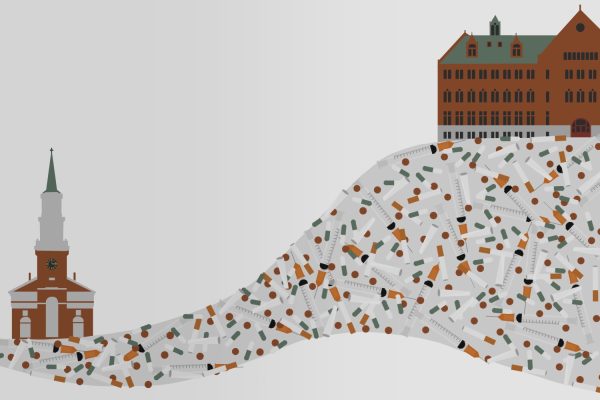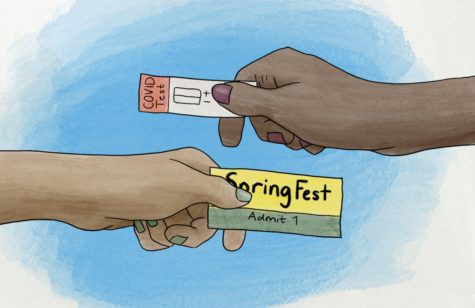The lessons of cancer
What are you living for?
It’s a moving question that could lead to various answers.
Some would say a loved one while others would mention their goals of improving the world.
More often than not, the answer would be absent or entail some overwhelmed rendition of “I don’t know.” It’s not a question one is asked regularly, and it may never have an answer.
Cancer: It is the uncontrolled growth of malignant cells in the body.
It impacts the lives of millions every day. Its elimination has also become a cause that people have rallied around.
Dance marathons, hair drives and yogurt lids — a charity-based partnership between Susan G. Komen and Yoplait — serve as research funding, morale boosters and ways to raise awareness.
In trying to cure cancer there seems to be a disconnect between those actually dealing with its malignancy and the thing itself.
Rhetoric on the topic of cancer is laden war analogies, which gives an incorrect sense of simplicity to a very complex issue.
Forget cancer – the people living with it are the ones that matter. What about those not as fortunate to undergo a successful treatment?
The concept of “losing a battle” brings an unwarranted element of choice into it. Living with cancer is just that: Living – with cancer.
Choice is nonexistent in the matter. Cancer isn’t conscious. It doesn’t discriminate. It doesn’t target. It just is.
Those who pass away because of it have not lost, succumbed or fallen. They did what everyone must do: live, and nothing else.
Cancer patients and others with diagnoses are not inspirations.
It is patronizing, belittling and insensitive to treat them and those most impacted around them as such.
It puts emphasis on haphazard happenings rather than the actual people and their achievements.
It is important to understand where that sentiment comes from. What does a person who is fighting for their lives inspire you to do?
Perhaps make the most of your time, raise money for a cause to which you may lack a genuine connection or not take good health for granted?
It’s unintentional but it’s degrading nonetheless. Inadvertently you have demeaned someone’s life based on an uncontrollable circumstance.
No one chooses their sickness, nor do they elect to represent all those with that ailment.
These people are not living for you or me. In fact, they are probably not living for anyone but themselves and that’s valid.
Linking your life to something or someone you don’t have control over seems fleeting. Your will to live comes from within.
Of course the will to live is encouraged by the love others demonstrate toward you, and what you feel for them in return, but that drive to press on has to be inherent.
Someone with a disease, disorder or condition is doing what they must to survive, thrive and live.
For them, their malady may be a real issue of life or death. Their existence isn’t for anyone’s benefit.
Would you ever ask someone with an illness what they are living for?
Not only would that question be wildly insensitive and wholly inappropriate, but it’s a rhetorical question. There’s no choice involved.
They live, just like anyone else, because there is no other option. They simply must. That’s their normal.
Learn from their amazing values and characteristics that supplement their journey through hardship, but disassociate from the narrative that turns people into publicity stunts.
These people are courageous, fierce and tough. That’s true – but they have to be.
They don’t have a choice in making it through the grueling experiences of working toward recovery. It is the reality of their actuality.
Someone who inspires you does so because they have chosen to aspire to something.
Choice is absolutely critical. Their significance lies in their choices not their existence or bodies or illnesses.
I’ll ask again. What are you living for?
In the grand scheme of things, it doesn’t really matter.











